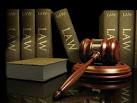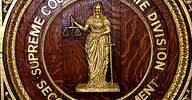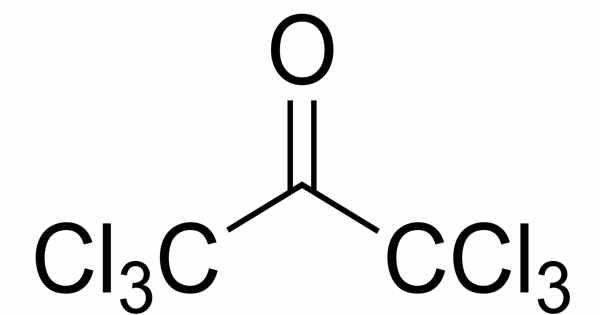Introduction
Substantive law and procedural law are the two main categories within the law. Substantive law refers to the body of rules that determine the rights and obligations of individuals and collective bodies. Procedural law is the body of legal rules that govern the process for determining the rights of parties. In context of procedural law; procedural rights may also refer not exhaustively to rights to Information, rights to justice, rights to participation which those rights encompassing, general Civil and Political rights
General concept of Substantive law and Procedural law
General concept of Substantive law and Procedural law: – Both public and private law may be substantive law or procedural law. The distinction between the substantive and procedural law is not an always easy and clear-cut. The same law may be procedural as well as substantive.
LAWS can be divided into two groups. Following these:-
- Substantive Law, And
- Procedural Or Adjective Law
Substantive law: –
Substantive law deals with the rights, duties and liabilities of the parties to the suit. It explains the parties to understand their rights. It also defines the crime or wrong and also their remedies.
When a particular law defines rights or crimes or any status, it is called substantive law.
For Example:- Penal law, Law of Contract, Law of Property, Specific Relief Act, etc are substantive law.
Procedural or Adjective Law: –
Procedural law deals with the process of litigation of the suit. It explains the parties to understand the means and method to achieve their rights.
When a particular law determines the remedies or outlines the procedure of litigation, it is called procedural law.
For Example: – Civil Procedure Code, Criminal Procedural Code etc. are procedural law.
Notice: The distinction between the substantive and procedural law is not an always easy and clear-cut. The same law may be procedural as well as substantive.
For Example: Evidence Act; etc.
# Historical background of the Law of Civil Procedure in Bangladesh: – Before 1859, there was no uniform Code of Civil Procedure. There were different systems of civil procedure in different parts of the country. The first uniform Code of Civil procedure was enacted in 1859. But that Code was also not made applicable to the Supreme Courts in the Presidency Towns and to the Presidency Small Cause Courts.
Some amendments were made therein and the Code was applied to the whole of British India, but there were many defects in it, and therefore, a new Code was enacted in 1887. Again, another Code was enacted in 1882, which was also amended from time to time.
- The Code of Civil Procedure 1859
- The Code of Civil Procedure 1877
- The Code of Civil Procedure 1882
- The Code of Civil Procedure 1908
(Amended in 1984)
# Structure of the C P C, 1908
- Preamble [Whereas it is expedient to consolidate and amend the laws relating to the procedure of the Courts of Civil Judicature]
- 155 Sections
- 50 Orders and Rules
- Appendix (A to I) [Appendix means the system form.]
# Law / Act / Code relating to civil matter
- The Code of Civil Procedure 1908
- The Limitation Act 1908
- The Civil Courts Act 1887
- The Civil Rules and Regulations 1887
- The Court Fees Act 1870
- The Suits Valuation Act 1887
- Relevant Laws (Civil Nature)
Notice: In the term of Civil Case Practice this 7 subject must be essential.
Section 1:-
- Short title
- Commencement
- Extent
of the Code of Civil Procedure Code, 1908
Section 1:- Short title, commencement and extent: –
1) This Act may be cited as the Code of Civil Procedure, 1908.
2) It shall come into force on the first day of January, 1909.
3) It extends to the whole of Bangladesh.
Section 2:- Definitions
1) Code [“Code” includes rules]
2) Decree [A decree is preliminary when further proceedings have to be taken before the suit can be completely disposed of. It is final when such adjudication completely disposes of the suit. It may be partly preliminary and partly final]
3) Decree-holder [“decree-holder” means any person in whose favour a decree has been passed or an order capable of execution has been made:]
4) District [“district” means the local limits of the jurisdiction of a principal Civil Court of original jurisdiction (hereinafter called a “District Court”), and includes the local limits of the ordinary original civil jurisdiction of the High Court Division]
5) Foreign Court [“foreign Court” means a Court situate beyond the limits of Bangladesh which has no authority in Bangladesh and is not established or continued by the Government]
6) Foreign Judgment [“foreign judgment” means the judgment of a foreign Court]
7) Government Pleader [“Government Pleader” includes any officer appointed by the Government to perform all or any of the functions expressly imposed by this Code on the Government Pleader and also any pleader acting under the directions of the Government Pleader]
8) Judge [“Judge” means the presiding officer of a Civil Court]
9) Judgment [“Judgment” means the statement given by the Judge of the grounds of a decree or order]
10)Judgment Debtor [“Judgment-debtor” means any person against whom a decree has been passed or an order capable of execution has been made]
11)Legal representative [“legal representative” means a person who in law represents the estate of a deceased person, and includes any person who intermeddles with the estate of the deceased and where a party sues or is sued in a representative character the person on whom the estate devolves on the death of the party so suing or sued]
12)Manse Profit [“mesne profits” of property means those profits which the person in wrongful possession of such property actually received or might with ordinary diligence have received therefrom, together with interest on such profits but shall not include profits due to improvements made by the person in wrongful possession]
13)Movable Property [“movable property” includes growing crops]
14)Order [“order” means the formal expression of any decision of a Civil Court which is not a decree]
15)Pleader [“pleader” means any person entitled to appear and plead for another in Court]
16)Prescribed [“prescribed” means prescribed by rules]
17)Public Officer []
18)Rules [“rules” means rules and forms contained in the First Schedule or made under section 122 or section 125]
19)Share in a Corporation [“share in a corporation” shall be deemed to include stock, debenture stock, debentures or bonds]
20)Signed [“signed”, save in the case of a judgment or decree, includes stamped]
















